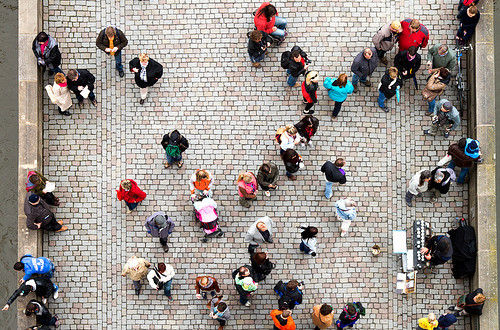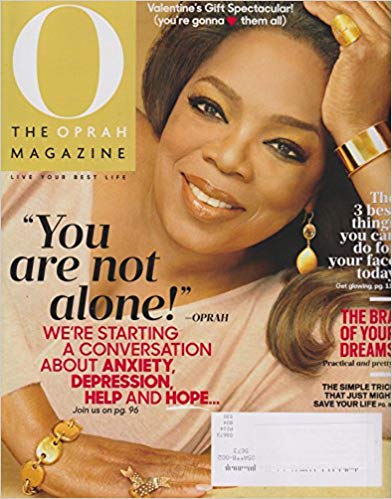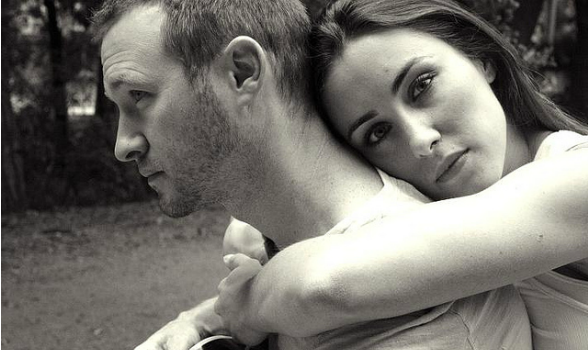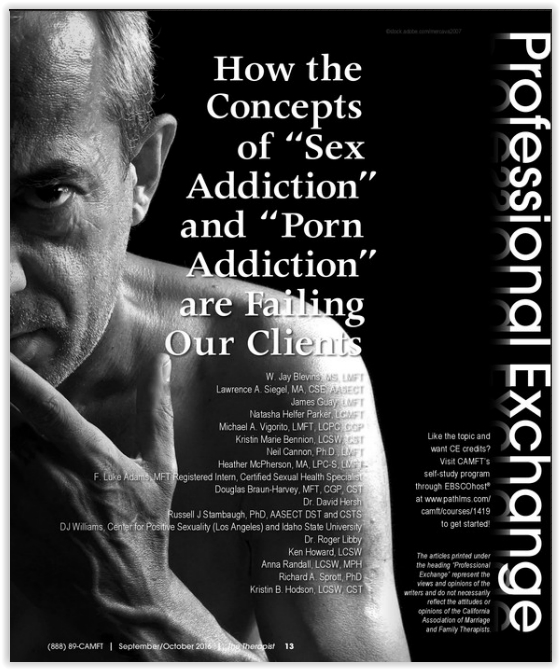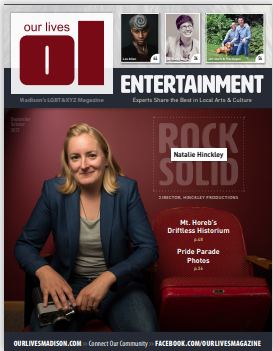How an Emotionally Disconnected Society Affects Our Relationships’ Success
It’s vitally important to relate our emotions with others’ experiences, and to exercise empathy. Alison and Jay Babble about this week’s topic: our emotionally disconnected society.
—
 Jay:
Jay:
A friend once asked me, if I could make one change in our society, what would it be?
I know what that change would be. I’d change how and what we teach about emotions. That’s right. I believe that our misunderstanding, and subsequent mishandling, of emotions are at the root of so many of our societal issues.
We teach that emotions are bad. In men they are weakness. In women they are irrational or crazy. Women are responsible for managing others’ emotions. Men should suppress everything except happiness and anger.
What we get is a society that doesn’t have the tools or understanding to handle their emotions
We don’t know how to sit with the anxiety of making hard decisions or with the uncertainty of life. We make bad decisions in an effort to avoid feeling discomfort.
We don’t understand that you can have multiple emotions at the same time. Some of them are even contradictory. We don’t know that emotions pass. They ebb and flow. We don’t need to act on how we feel this minute because we may feel different in five minutes.
We don’t know how to handle the feelings of someone being different, or heaven forbid, maybe even better than us.
So we live in a society that is emotionally disconnected. We feel unloved and unwanted. We feel worthless.
We want to control everything
Because uncertainty is anxiety provoking. We make everything black and white. Binary. Yes or no. There is no room for the gray because gray is uncomfortable. It raises anxiety and fear.
We can’t stand to feel inadequate or less. So instead of learning to handle those emotions we put others down, demean them, shame them. All in an effort to feel better about ourselves.
Racism, slut shaming, fat shaming, every form of shaming and “ism” starts with the fear that we may not be good enough. And the more we make things binary, yes or no, right or wrong, the easier it is to judge.
Life isn’t about compromise or acceptance. It is about winning. Relationships. Religion. Politics. We don’t work together. We work to win. To say we are right. Others are wrong.
And the emotions remain. They still happen despite the attempts to stuff them down. They build like a pressure cooker. Until finally they have to come out. But we don’t have the skills to manage them. We don’t know what to do with them.
So they become anger. They become hate. They become violence. Because those are “acceptable.” And they are powerful. They let us avoid feeling the discomfort of the real emotions. They let us feel in control. And they are devastating.
Yeah. I’d change our understanding of emotions.
◊♦◊
Alison:
Emotions can be incredibly problematic, I agree. As for me, I would wish for better understanding of each other’s emotions, in the form of empathy. I think it’s what’s missing when we look at incidents of racism and shaming as described by Jay.
You don’t have to look further than a Facebook parenting group to see where empathy shrivels
An exhausted mother asks, “Does anyone have a stress-free life? Is it always this hard?” Other moms chime in with tales of overflowing laundry, forgotten appointments and cobwebs in the corner as they struggle to balance their demands against limited available time. “We’ve been there sister” is the underlying chorus.
Among the chiming of “me too” another voice rises. It demonstrates the problem of missing empathy in judgment among parents. “My life is pretty good, actually. No money worries, kids are happy and healthy and my house is clean.” The overwhelming urge to define “rhetorical question” is suppressed as I observe the contrast in replies. This woman was not asking for advice on sock and Tupperware lid management, she was looking for understanding and empathy.
Empathy is a tool I use in my parenting to approach behavior that is undesirable. “How would you feel if mommy did that to you?” I ask, urging my son to temporarily switch places with me to gain more perspective. I want him to understand someone else’s feelings and adjust his actions to accommodate them where reasonable. I want him to know empathy is important in building healthy relationships.
In my dating life, I used empathy to explain myself a lot
“Can I just come over to your place?” was a question I fielded often after I requested a public first meeting with my potential date. For me it wasn’t a matter of propriety, but of not letting a stranger into my home unless I felt safe and confident they weren’t an axe murderer. “Forget those negative statistics, I never worry about that stuff!” my prospect would chortle, taunting my timid approach.
In time, I developed a standard response as follows, “When was the last time you felt truly vulnerable? If you were very small, would you consider it wise to invite someone who could easily overpower you into a private space? Would you want someone you don’t know to be alone with you where nobody would know if something happened to you? Don’t you want me to feel comfortable?” Respecting boundaries has a lot to do with empathy.
Empathy is also at the heart of human rights movements.
It’s about asking to be granted liberties from those that have always held the power
“How would you feel if you couldn’t marry the person you love?”
“How would you feel if your work was undervalued on the basis of your anatomy?”
“How would you feel if your access to health care was limited by someone else’s religious beliefs?”
Social justice relies on empathy to achieve positive outcomes for people who don’t come from a place of privilege. Empathy is about finding common ground, regardless of where one comes from.
Whether it’s parents judging each other, trying to raise respectful children, negotiating relationship boundaries, and fighting for the rights of the oppressed, I wish the world had more empathy. I wish we understood each other better, or at least wanted to understand each other more.
If I could change our society, I would ask for more empathy
Jay:
Alison, I absolutely agree. The challenge with empathy is that it about connecting your own emotional experiences with what someone else is experiencing.
That’s tough to do if you aren’t even aware of your own emotions!
◊♦◊
Originally posted on The Good Men Project.
photo credit: Life from Above via photopin (license)

